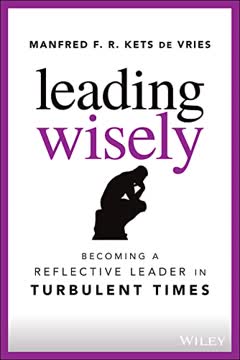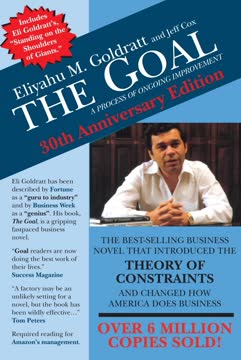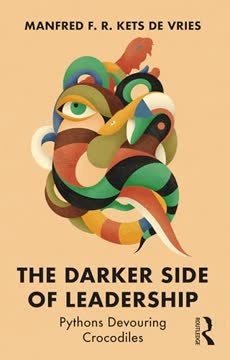Key Takeaways
1. Wisdom is knowing that you don't know everything
Even a fool, who keeps quiet, is considered wise, discerning, if he seals his lips.
Socratic wisdom. The recognition of one's own ignorance is the foundation of true wisdom. This paradoxical concept, often attributed to Socrates, emphasizes that the wisest individuals are those who understand the vastness of what they don't know.
Lifelong learning. Embracing this mindset fosters:
- Continuous curiosity and exploration
- Openness to new ideas and perspectives
- Humility in the face of complex challenges
Wise individuals approach life with a sense of wonder, always seeking to expand their understanding rather than resting on assumed knowledge. They recognize that wisdom is a journey, not a destination, and that there is always more to learn and discover.
2. True wisdom combines humility, judgment, and action
The weak can never forgive. Forgiveness is the attribute of the strong.
Wisdom's components. True wisdom is a multifaceted quality that encompasses:
- Humility: Recognizing one's limitations and being open to learning
- Good judgment: The ability to make sound decisions based on knowledge and experience
- Action: Applying wisdom to real-life situations and making a positive impact
Balancing act. Wise individuals strike a delicate balance between these elements:
- They remain humble while confidently applying their knowledge
- They exercise good judgment while remaining open to new information
- They take action based on their wisdom, but are willing to adjust course when necessary
This combination allows wise people to navigate complex situations effectively, make positive contributions to their communities, and continuously grow as individuals.
3. Suffering can be a powerful teacher on the path to wisdom
No sorrow, no wisdom.
Transformative experiences. Suffering, while challenging, can be a catalyst for profound personal growth and wisdom. Difficult experiences often:
- Force us to confront our limitations and vulnerabilities
- Challenge our existing beliefs and assumptions
- Develop empathy and compassion for others
Learning from adversity. Wise individuals approach suffering as an opportunity for:
- Self-reflection and introspection
- Developing resilience and inner strength
- Gaining new perspectives on life and its challenges
By embracing the lessons that come from difficult experiences, rather than simply enduring them, we can transform suffering into a source of deep wisdom and personal growth.
4. The Golden Rule is fundamental to wise living and leadership
Do unto others as you would have them do unto you.
Universal principle. The Golden Rule, found in various forms across cultures and religions, is a cornerstone of ethical behavior and wise decision-making. It encourages:
- Empathy and consideration for others
- Fair and just treatment of all individuals
- Creation of harmonious relationships and communities
Practical application. In daily life and leadership roles, following the Golden Rule means:
- Treating others with respect and kindness
- Considering the impact of our actions on others
- Striving to create win-win situations in conflicts or negotiations
By consistently applying this principle, wise individuals and leaders can foster trust, cooperation, and positive outcomes in both personal and professional spheres.
5. Forgiveness is a strength that liberates both parties
Forgiveness is not something you just do for other people. It is something that you do very much for yourself.
Freedom through forgiveness. Forgiveness is a powerful act that benefits both the forgiver and the forgiven:
- It releases the burden of anger and resentment
- It allows for healing and moving forward
- It can restore relationships and foster personal growth
Misconceptions about forgiveness:
- It does not mean forgetting or condoning harmful actions
- It is not a sign of weakness, but rather of inner strength
- It does not always require reconciliation with the offender
Wise individuals recognize forgiveness as a process that takes time and effort, but ultimately leads to greater peace and freedom in their own lives.
6. Envy and greed are obstacles to wisdom and happiness
Fortune truly helps those who are of good judgement.
Destructive emotions. Envy and greed can significantly hinder personal growth and wisdom:
- They foster negative feelings and comparisons with others
- They create a sense of scarcity and dissatisfaction
- They can lead to unethical or harmful actions
Overcoming envy and greed:
- Practice gratitude for what you have
- Focus on personal growth rather than comparison
- Develop empathy and compassion for others
- Set meaningful goals based on intrinsic values
Wise individuals recognize these emotions when they arise and work to transform them into more positive motivations, such as inspiration or healthy ambition.
7. Deep listening is essential for understanding and growth
There's a lot of difference between hearing and listening.
Art of listening. Deep listening goes beyond merely hearing words; it involves:
- Giving full attention to the speaker
- Seeking to understand the speaker's perspective and emotions
- Suspending judgment and personal biases
Benefits of deep listening:
- Enhances relationships and builds trust
- Leads to better decision-making and problem-solving
- Fosters personal growth and learning
Wise individuals cultivate the skill of deep listening, recognizing it as a powerful tool for gaining wisdom, building connections, and making a positive impact on others.
8. Choose your battles wisely to preserve energy for what matters
It is not because things are difficult that we do not dare, it is because we do not dare that things are difficult.
Strategic engagement. Choosing battles wisely involves:
- Assessing the importance and potential impact of each conflict
- Considering the long-term consequences of engagement
- Preserving energy and resources for truly significant issues
Decision-making framework:
- Identify the core issue or problem
- Evaluate its importance in the grand scheme of things
- Consider potential outcomes and their impact
- Assess the resources required to engage
- Decide whether to act or let go
Wise individuals recognize that not every conflict requires their involvement and that sometimes, the most powerful action is to walk away from unproductive battles.
9. Courage is necessary to live authentically and pursue wisdom
Courage is wisdom, and wisdom is courage.
Courageous authenticity. Living with courage means:
- Being true to oneself despite external pressures
- Facing fears and uncertainties head-on
- Taking calculated risks in pursuit of growth and wisdom
Cultivating courage:
- Identify and challenge limiting beliefs
- Start with small acts of bravery and build up
- Surround yourself with supportive and encouraging people
- Learn from failures and setbacks
Wise individuals recognize that courage is not the absence of fear, but the willingness to act despite it. They understand that courage is essential for personal growth, pursuing wisdom, and making a positive impact on the world.
10. Happiness is a choice and a journey, not a destination
The happiness of your life depends upon the quality of your thoughts.
Happiness mindset. True happiness is not a fixed state to be achieved, but rather:
- A conscious choice made daily
- A way of perceiving and interacting with the world
- An ongoing journey of growth and self-discovery
Cultivating happiness:
- Practice gratitude regularly
- Focus on the present moment
- Nurture positive relationships
- Engage in meaningful activities and pursuits
- Cultivate a growth mindset
Wise individuals understand that happiness is largely within their control and that it comes from how they choose to perceive and respond to life's experiences. They recognize that true happiness often arises from living in alignment with one's values, contributing to others, and embracing life's journey with openness and curiosity.
Last updated:
Review Summary
Leading Wisely receives high praise from readers, with an average rating of 4.14 out of 5. The book is lauded for its beautiful writing and exploration of wisdom in leadership. Readers appreciate the author's journey through key pillars of wisdom, including the golden rule, forgiveness, humility, self-knowledge, and courage. The book emphasizes that wisdom is not merely about intelligence, but about seeing the bigger picture, caring for the greater good, and recognizing the importance of life experiences. Readers find the content insightful and applicable to both leadership and personal growth.
Similar Books
Download PDF
Download EPUB
.epub digital book format is ideal for reading ebooks on phones, tablets, and e-readers.








